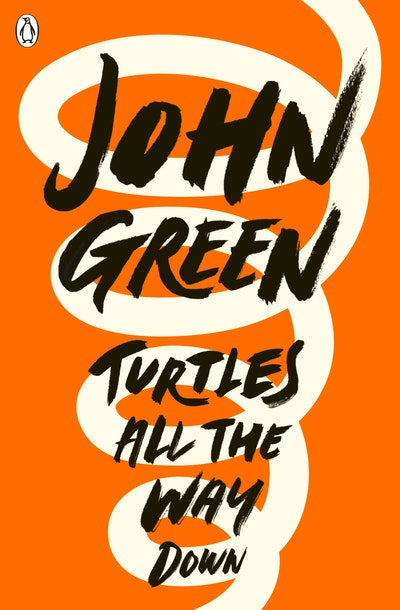
But it also is very helpful to me in reminding me that I do have some say in framing my own experience. So that is very helpful to me in thinking about why I like writing and reading. They shape the actual world and they shape our actual lives. They’re both right because obviously the world is a sphere - I’m not like a flat-Earther or anything -but the world is also the stories we tell about it. The point of the story is that the scientist is right but the old woman saying that the world rests on a turtles all the way down situation, she’s also right. And now I realize - or I think now - that that’s not the point of the story at all. I thought that it was about how stupid superstition is and how science is right and everyone else is wrong. When I first heard it I was a college student. What inspired you to use the turtles all the way down story - an anecdote that illustrates the problem with infinite regression - as a metaphor for Aza’s struggle? It’s something I expect to live with and still have a fulfilling life. For me, it’s not something I expect to defeat in my life. It’s just that hasn’t been my story with mental illness and I didn’t really want it to be Aza’s. We really like stories that involve conquering obstacles and involve victory over adversity. Why was it important to you to convey that message? You emphasize the idea that there’s no magical cure for mental illness throughout the book. And one of the main things I wanted to do in the book was to get at how isolating it can be to live with mental illness and also how difficult it can be for the people who are around you because you’re so isolated. But in another way, it was really empowering because I felt like if I could give it form or expression I could look at it and I could talk about it directly rather than being scared of it. It was really hard, especially at first, to write about this thing that’s been such a big part of my life. The word triggering has become so broadly used in popular culture, but anyone who has experienced an anxiety attack knows how badly they want to avoid it.

I still can’t really talk directly about my own obsessions. And so Aza has somewhat different focai of her obsessive concerns and the behaviors she uses to manage them. I had to write with enough distance from myself to make it OK, to make it feel safe. What was it like to write about the specific type of OCD and anxiety you’ve suffered from?


You’ve been extremely open about talking about your own struggles with mental illness.


 0 kommentar(er)
0 kommentar(er)
